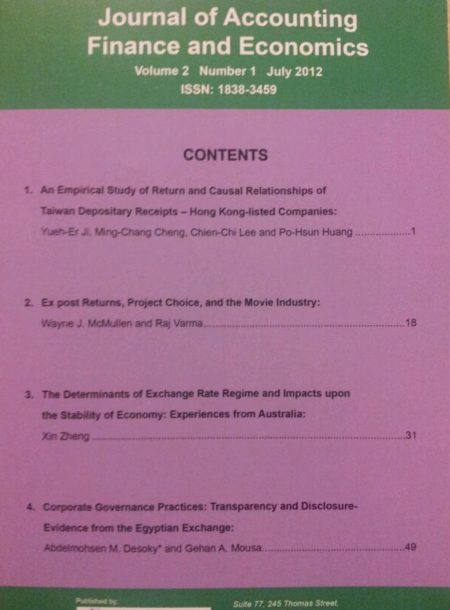Journal of Accounting, Finance and Economics
Vol. 6. No. 1., March 2016, Pages: 1 – 20
Behavioural Timing, Valuation and Post-Issue Performance of UK Rights Issues
Heba Ali
Using a comprehensive sample of 2853 UK rights issues launched from 1975-2007, this study introduces a new angle on testing the behavioural timing hypothesis in the context of SEOs via investigating the inter-relationships between the magnitude of firm mis-valuation and post-issue 3-year stock price performance. Firm mis-valuation is measured using (i) a methodology developed in Rhodes-Kropf, Robinson and Viswanathan (2005) of decomposing market-to-book ratios into mis-valuation and growth options components, and (ii) intensity of rights issuance activity (hot vs. cold markets). The findings exhibit compelling evidence in support of significant over-valuation of rights-issuing firms relative to non-issuing firms. The findings show an evidence in support of the behavioural timing hypothesis, robust to the used measurement method and benchmark return, which stands in line with the findings of Loughran and Ritter (1995), Brown, Gallery and Goei. (2006), Chen and Cheng (2008), and Hertzel and Li (2010).

